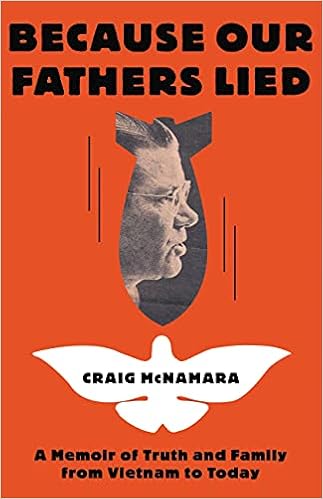A groundbreaking work of investigative nonfiction on life in China’s burgeoning surveillance state.
SURVEILLANCE STATE:
Inside China’s Quest to Launch a New Era of Social Control
by Josh Chin and Liza Lin
St. Martin’s Press, September 2022
 People living in democracies have for decades drawn comfort from the notion that their form of government, for all its flaws, is the best history has managed to produce. SURVEILLANCE STATE documents with startling detail how even as China’s Communist Party pays lip service to democracy as a core value of “socialism with Chinese characteristics,” it is striving for something new: a political model that shapes the will of the people not through the ballot box but through the sophisticated―and often brutal―harnessing of data.
People living in democracies have for decades drawn comfort from the notion that their form of government, for all its flaws, is the best history has managed to produce. SURVEILLANCE STATE documents with startling detail how even as China’s Communist Party pays lip service to democracy as a core value of “socialism with Chinese characteristics,” it is striving for something new: a political model that shapes the will of the people not through the ballot box but through the sophisticated―and often brutal―harnessing of data.
On the country’s remote Central Asian frontier, where a separatist movement strains against Party control, China’s leaders have built a dystopian police state that keeps millions under the constant gaze of security forces armed with AI. Across the country in the city of Hangzhou, the government is weaving a digital utopia, where tech giants help optimize the friction out of daily life. Award-winning journalists Josh Chin and Liza Lin take readers on a journey through both places, and several in between, as they document the Party’s ambitious push―aided, in some cases, by American technology―to engineer a new society around the power of digital surveillance.
China is hardly alone. As faith in democratic principles wavers, advances in surveillance have upended debate about the balance between security and liberty in countries around the globe, including the US. Succeed or fail, the Chinese experiment has implications for people everywhere.
Josh Chin is Deputy Bureau Chief in China for The Wall Street Journal. He previously covered politics and tech in China for the newspaper for more than a decade. He led an investigative team that won the Gerald Loeb Award for international reporting in 2018. Born in Utah, he lives in Taiwan.
Liza Lin works as the journalist covering data use and privacy for The Wall Street Journal from Singapore. Liza was part of the Journal team that won the Loeb in 2018. Prior to the WSJ, Liza spent nine years at Bloomberg News and Bloomberg Television.

 Viktoryia Andrukovič, the Belarusian human rights advocate and political activist, was born in 1994, the year that Lukashenko came to power. She knows her homeland only as a country under the yoke of an increasingly autocratic regime, and she spent her deprived and precarious adolescence there hoping for a better, freer future for her country. An opposition activist both before and after the 2020 presidential elections, she now works with Belarusian NGOs in exile.
Viktoryia Andrukovič, the Belarusian human rights advocate and political activist, was born in 1994, the year that Lukashenko came to power. She knows her homeland only as a country under the yoke of an increasingly autocratic regime, and she spent her deprived and precarious adolescence there hoping for a better, freer future for her country. An opposition activist both before and after the 2020 presidential elections, she now works with Belarusian NGOs in exile. Human rights organisations and governments speak of a crime against humanity, a « cultural genocide ». Mihrigul Tursun has repeatedly been a victim of Chinese efforts to totally assimilate the Uyghur minority. She experienced the so-called « re-education camps » in their indescribable cruelty, the physical and psychological violence, first hand. In a way that remains unexplained to this day, her young son died while she was imprisoned. Today, despite the threat that has not disappeared even in exile, she has the courage to speak openly about what she experienced and to describe from her own experience what the Uyghur minority in China has to endure. A significant eyewitness account that brings the reader closer to the people behind the news from China.
Human rights organisations and governments speak of a crime against humanity, a « cultural genocide ». Mihrigul Tursun has repeatedly been a victim of Chinese efforts to totally assimilate the Uyghur minority. She experienced the so-called « re-education camps » in their indescribable cruelty, the physical and psychological violence, first hand. In a way that remains unexplained to this day, her young son died while she was imprisoned. Today, despite the threat that has not disappeared even in exile, she has the courage to speak openly about what she experienced and to describe from her own experience what the Uyghur minority in China has to endure. A significant eyewitness account that brings the reader closer to the people behind the news from China. Stephanie Grisham rose from being a junior press wrangler on the Trump campaign in 2016 to assuming top positions in the administration as White House press secretary and communications director, while at the same time acting as First Lady Melania Trump’s communications director and eventually chief of staff. Few members of the Trump inner circle served longer or were as close to the first family as Stephanie Grisham, and few have her unique insight into the turbulent four years of the administration, especially the personalities behind the headlines.
Stephanie Grisham rose from being a junior press wrangler on the Trump campaign in 2016 to assuming top positions in the administration as White House press secretary and communications director, while at the same time acting as First Lady Melania Trump’s communications director and eventually chief of staff. Few members of the Trump inner circle served longer or were as close to the first family as Stephanie Grisham, and few have her unique insight into the turbulent four years of the administration, especially the personalities behind the headlines. Craig McNamara is “the son of the war’s architect,” Robert McNamara, who served as John F. Kennedy’s Secretary of Defense and was responsible for the continuation of the Vietnam War. This memoir reflects on Craig’s adolescent struggles to discern right from wrong amidst a flurry of political escalation from his own father and anti-war sentiments from his peers, and eventually, what led him to embark on a lifelong journey of anti-war protest.
Craig McNamara is “the son of the war’s architect,” Robert McNamara, who served as John F. Kennedy’s Secretary of Defense and was responsible for the continuation of the Vietnam War. This memoir reflects on Craig’s adolescent struggles to discern right from wrong amidst a flurry of political escalation from his own father and anti-war sentiments from his peers, and eventually, what led him to embark on a lifelong journey of anti-war protest.